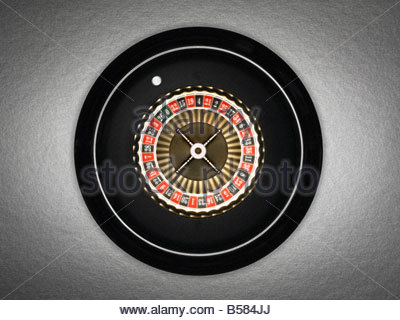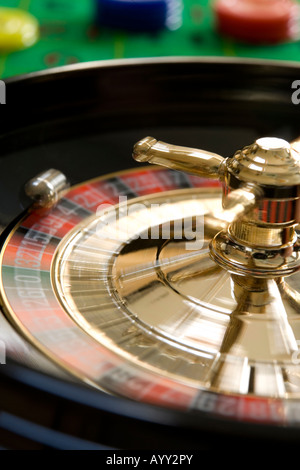Spinning Wheel Gambling
Gambling Simulation
A simple gambling simulation program is easy to write. Even a simple program is fun to play with, but a more sophisticated program is more fun.

The Internet now offers the possibility of gambling on-line, with 'real money'. The software for this system is quite sophisticated. There are several issues/problems involved:
- HomGarden 24 Inch Tabletop Color Spinning Prize Wheel 14 Slots Editable Classic Spin Win Prize Wheel Fortune Spin Game Casino Equipment 4.4 out of 5 stars 21 $42.59 $ 42.
- A prize wheel, like the one used in the popular game show Wheel of Fortune, is a round wheel that you can spin to determine what you win—or lose! You can use prize wheels at carnivals, festivals, or parties.
- Set the Betway Prize Wheel spinning for your chance to win some great Casino, Live & Real and Sports goodies on a daily basis. Return each day when your FREE SPIN resets – spins are available from 00:00-23:55.
- Audio about Spinning wheel sound effect. Designed for gambling apps and video games. Audio of spun, show, gaming - 147239759.
A guaranteed way to maximize profit while gambling in the new bandit town in Rust. The new scrap gambling in the bandit town allows for players to safely obt.
- What are the rules of the game being simulated (the exact rules)?
- How can the game be represented inside the computer?
- How can the user-interface be created (start with a highly simplified version)?
- How can the game be connected to an E-cash system?
- How can a larger casino system be created from many games?
- How can multi-player games be created using a server?
- How can the simulation be made more realistic, to increase the fun (animation, 3D, sounds)?

Top-Level Design (tasks)
Here is a list of tasks to be performed by an on-line roulette simulation:
- Log-in (user identifies themselves)
- Give user 'chips' (money) to start with
- User places bet(s)
- Spin the wheel
- video simulation of spinning wheel (happens at the client)
- generate random result(s) (happens at the server)
- coordinate server and client by transmitting data - Decide whether the user wins or loses
- Pay winnings or deduct losses
Low-Level Design (modules)
Here is a list of useful modules to solve problems in an on-line roulette program:
- User-ID verification
- Roulette-wheel animation
- Matching red/black to numbers
- Secure communication system for client/server exchanges
- Background graphics and sound routines (e.g. chips 'clunking' onto the table)
- E-payment system
Useful Standard Functions (Java)

Random Numbers: int number = rand(0,36) -- choose a random number between 1 and 36
Grouping Numbers: group = number / 3 -- integer division, returns a whole number result
Even or Odd : result = group % 2 -- this result is 0 for even, 1 for odd numbers
importjava.awt.*;
publicclassRouletteextendsEasyApp
{publicstaticvoidmain(String[]args)
{
newRoulette();
}
LabellMoney=addLabel('Money',40,40,60,30,this);
TextFieldtMoney=addTextField(',100,40,100,30,this);
ButtonbBet=addButton('Bet',40,70,80,30,this);
ButtonbSpin=addButton('Spin',120,70,80,30,this);
TextFieldtBet=addTextField(',40,100,80,40,this);
TextFieldtChoice=addTextField(',40,140,80,40,this);
TextFieldtNumber=addTextField(',120,100,80,80,this);
intmoney=1000;
intbet=0;
intbetting=0;
Stringchoice=';
publicvoidactions(Objectsource,Stringcommand)
{
if(sourcebBet)
{makeBet();}
elseif(sourcebSpin)
{spin();}
}
publicRoulette()
{
setTitle('Raging Roulette');
setSize(250,200);
setBackground(Color.green);
tNumber.setFont(newFont('Arial',0,50));
tNumber.setForeground(Color.white);
tNumber.setBackground(Color.green);
tBet.setFont(newFont('Arial',0,30));
tChoice.setFont(newFont('Arial',0,30));
tMoney.setFont(newFont('Arial',0,16));
tMoney.setText(money+');
}
publicvoidmakeBet()
{
do
{
betting=inputInt('How much do you want to bet?');
}while(betting<0 betting>money);
bet=betting;
choice=input('Betting on : Red, Black, or a Number');
tBet.setText(betting+');
tChoice.setText(choice);
}
publicintrand(intlowest,inthighest)
{
return(int)(Math.floor(Math.random()*(highest-lowest+1)+lowest));
}
publicvoidspin()
{
longstart=System.currentTimeMillis();
do
{
intnum=rand(0,36);
tNumber.setText(num+');
if(num0)
{tNumber.setBackground(Color.green);}
elseif(((num-1)/3)%20)
{tNumber.setBackground(Color.red);}
else
{tNumber.setBackground(Color.black);}
repaint();
}while(System.currentTimeMillis()-start<3000);
money=money+checkWinner();
tMoney.setText(money+');
}
publicintcheckWinner()
{
if((tNumber.getBackground()Color.red)&&(tChoice.getText().equals('Red')))
{returnbet;}
elseif((tNumber.getBackground()Color.black)&&(tChoice.getText().equals('Black')))
{returnbet;}
elseif(tNumber.getText().equals(tChoice.getText()))
{return36*bet;}
else
{return-bet;}
}
publicvoidpause(longmillis)
{
longstart=System.currentTimeMillis();
do
{
}while(System.currentTimeMillis()-start<millis);
}
}
Class Project
The prototype Raging Roulette contains lots of ideas which are useful for other gambling simulations. Slot machines, dice, card games, and any other gambling game can be simulated in a similar fashion.
Our class project will concentrate on multi-player games rather than casino games. A multi-player game has several players, all equal, and the winnings/losses are moved from player to player. There is no 'house'. This is more like how real people play games with friends - for example, card games like poker.
Our project is to build several multi-player gambling games. The players will exchange V-money (virtual money), kept in a virtual bank (managed by the teacher).
Rather than implementing a standard game like roulette or poker, students will design their own gambling games. Here is an example:
Divide and Conquer - an Invented Game
Each player places a bet and chooses a number between 2 and 12. The numbers and bets remain secret from the other players. The minimum bet permitted is 50 dm. The total of all the bets forms a 'pot'. Two dice are then rolled. If one of the players guessed the result correctly, he/she wins the entire pot. If more than one player bet on that number, the player who bet the most money wins the entire pot - the others lose. If there is a tie, they split the pot. If nobody bet on that number, the money remains in the pot for the next game.
Example Games ( Assume there are three players - Alice, Bob, Carla )
Alice | Bob | Carla | Pot | Dice Roll | Winner |
50 dm on #7 | 100 dm on #6 | 50 dm on #8 | 200 | #7 | Alice |
50 dm on #7 | 100 dm on #7 | 50 dm on #8 | 200 | #7 | Bob |
200 dm on #7 | 100 dm on #6 | 50 dm on #8 | 350 | #9 | No Winner |
200 dm on #7 | 150 dm on #7 | 50 dm on #8 | 400+350 | #8 | Carla |
Project Organization
Each student creates a game (specifies the rules) and writes programs to implement the on-line version. This includes a server program which generates the random results and makes payments to winners, as well as the client program which runs on the user's computer and takes bets and displays results. To prevent any cheating (secret 'lucky numbers'), the program code must remain public (open source). Also, the authors cannot win any V-money playing their own games.
Gambling Spinning Wheel For Sale
The teacher will implement the V-cash system. This will include virtual salaries for all students on a daily basis, as well as bonuses for outstanding programs or clever ideas. (Absent students forfeit their daily salary.)
Spinning Wheel Bingo
The server programs must be designed to interface properly with the V-cash system, so that winnings can be correctly posted to student accounts. Incorrect payments may result in fines for the programmers.
Development Steps

- Try out the Raging Roulette simulation
- Invent a new game, based on dice, cards, spinners, or some other random
- Write a stand-alone version, like Raging Roulette, including a simple user-interface, the random-result generator, and simplified pay-off system (without an actual bank-file)
- Connect to server-based E-cash and convert payoff system to 'real' E-cash (the teacher will make the E-cash system
- Integrate your program into the Our-Casino system
- Improve the user-interface to be more realistic
- Refactor into a multi-player, client-server game
You’ve probably seen the Money Wheel (sometimes called the Cash Wheel, or Big Six wheel as the wheel has 6 different possible combinations) in your local casino. It’s normally a big wooden or plastic wheel with lots of different coloured sections on it that gets hand spun by a Money Wheel (Bix Six Wheel) casino dealer, and makes a clack-clack noise as it’s spun. You bet on combinations available on the Money Wheel and you get paid at various odds if the wheel marker ends up on those combinations. I’ve always thought of the casino Money Wheel as bit of a sideshow game. You’ll see derivatives of the wheel at local fairs, Easter shows, A&P shows, or at circus events.
This Big Six / Money Wheel can be a fun game to play – but the secret to winning here is to bet SMALL, and never more than one or two number combinations at a time. This game is all about luck – there’s no strategy that you can apply to the Money Wheel to win consistently in the long term.
Money Wheel (Big Six) is a simple game to play, and you can get up to a 40-1 payout (that’s higher than roulette, but the house edge is higher on the Money Wheel). Simply guess which symbol group on the large cash wheel the gauge / marker will point to when the wheel stops following a dealer spin. Money Wheel (also called Cash Wheel, or in some countries Big Six wheel) is normally played on a vertical rotary big wheel with a fixed gauge/pointer on the edge. The wheel has 54 (USA) or 52 (Australia) slots/sections signifying various repeating groups of the six principal betting symbols. The odds paid out however are not the true odds – thus our advice to bet small here.
To bet, put your cash on the table and let the dealer exchange your money for casino gaming chips. Place your chips on the part of the Money Wheel betting layout that represents the bet you which to make. You may bet on one or more symbols each time. When all wagers are placed, the dealer spins the wheel with a solid pull and push down activity and catches one side of the wheel. The Big Six wheel slowly grinds to a stop and shows the winning number / symbol.
The symbols, odds, returns and house edge are shown for each possible Money Wheel bet below.
Rust Spinning Wheel Gambling
Big Six Money Wheel (Cash Wheel) Odds Slots and Payoffs
24 slots at even money, indicated $1, pays 1 to 1 – House Edge is 11.11%
15 slots at 2:1, indicated $2, pays 2 to 1 – House Edge is 16.67%
7 slots at 5:1, indicated $5, pays 5 to 1 – House Edge is 22.22%
4 slots at 10:1, indicated $10, pays 10 to 1 – House Edge is 18.52%
2 slots at 20:1, indicated $20, pays 20 to 1 – House Edge is 22.22%
1 slot at 40:1, indicated Joker or Logo, pays 40 to 1 – House Edge is 24.07% (or 14.81% if 45:1 is paid)
Gambling Spinning Wheel

Gambling Wheel Games
Play the Big Six Money Wheel for small stakes, and never for a long period. Our How to Beat the Casinos mantra of “Get in (to the game), Get Up (in your bankroll / capital), Get Out (leave the game)” should be closely followed here. You can easily win on the Money Wheel in the short term, but the very high house edge on this game will mean you simply can’t win in the long term.